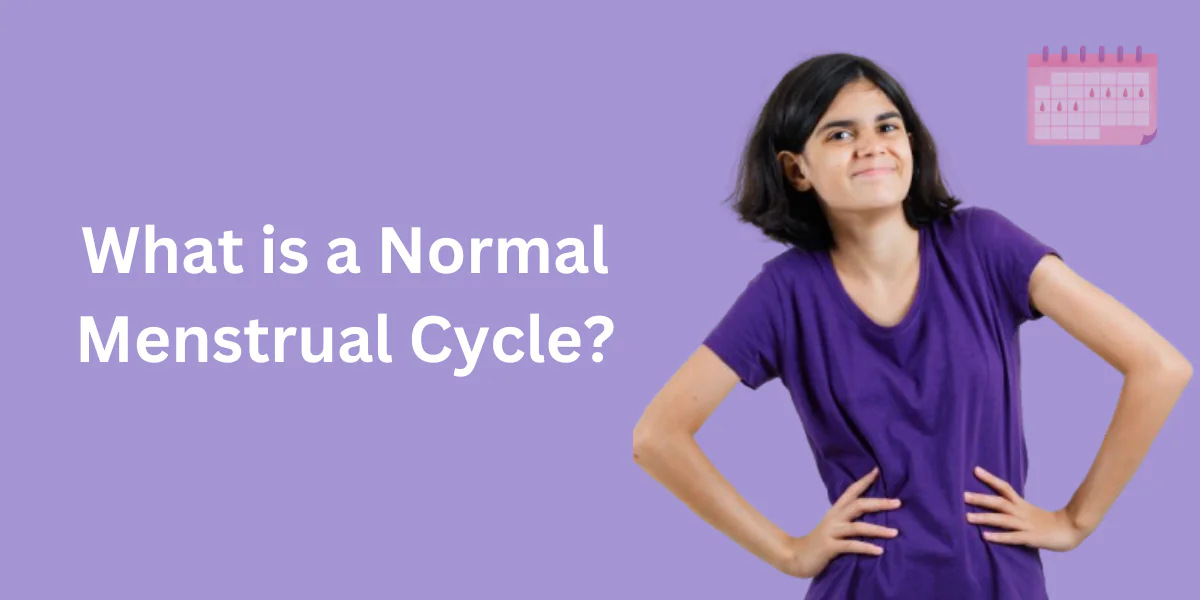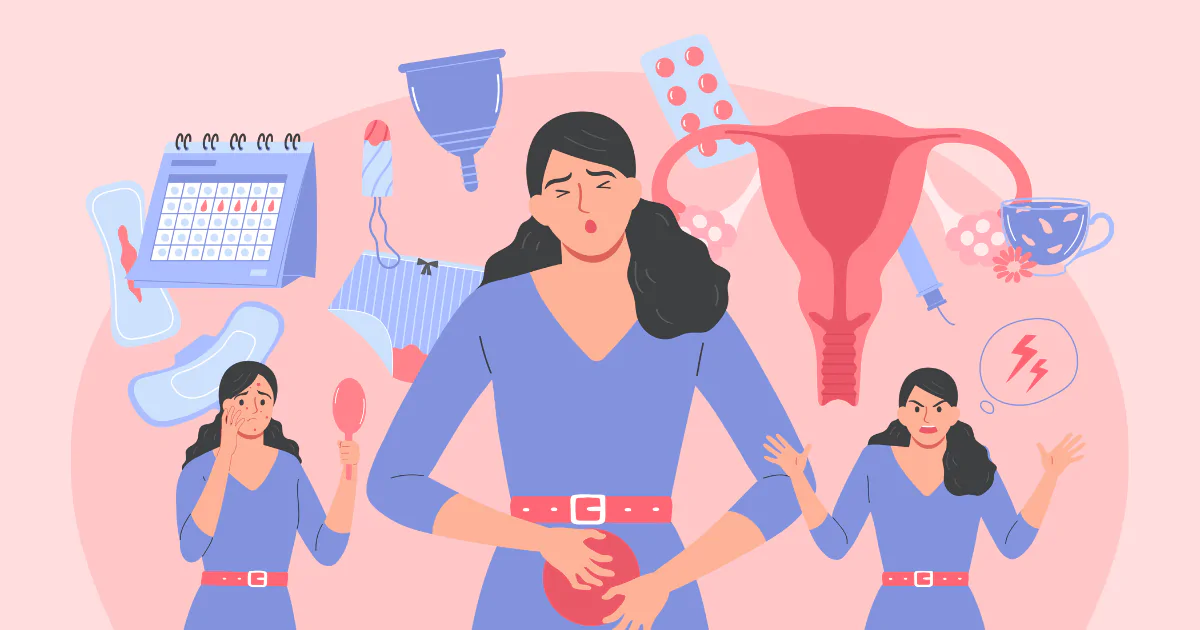Every woman’s menstrual cycle is unique, and changes in period length can often raise questions. If you find yourself wondering, “Is a 2-day period normal?”, you’re not alone. In this article, we will explore whether having a period that lasts only two days is something to be concerned about, the possible reasons for short periods, and when it’s time to consult a doctor.
Let’s dive into the details in a way that’s easy to understand, using examples and information tailored to a general Indian audience.
What is a Normal Menstrual Cycle?
Before addressing the question of whether a 2-day period is normal, it’s important to understand what a typical menstrual cycle looks like.
- Cycle Length: A regular menstrual cycle can last anywhere between 21 to 35 days.
- Period Duration: For most women, periods last between 3 to 7 days. Blood flow is typically heavier during the first two days and becomes lighter toward the end.
However, “normal” can vary widely from person to person. Some women naturally have shorter periods, while others experience longer ones. In India, it’s common to hear women discussing their cycles with their mothers, friends, or even in women’s health groups, emphasizing how different everyone’s experience can be.
Is a 2-Day Period Normal?
Yes, a 2-day period can be normal for some women. Menstrual flow varies significantly due to various factors like:
- Age: Young women, especially during their teen years, often experience irregular cycles as their bodies adjust to hormonal changes. A shorter period may occur naturally as part of this adjustment. Similarly, women nearing menopause might notice shorter and lighter periods.
- Lifestyle: Factors like stress, excessive exercise, or changes in diet can affect how long your period lasts. It’s not uncommon for busy professionals or students in India to notice a shift in their menstrual cycles during exam time or a stressful work period.
That said, if your period has always lasted longer (e.g., 4-5 days) and has suddenly shortened to 2 days, it’s important to look into the possible causes.
Possible Causes of a Short Period
There are several reasons why your period may last only 2 days, some of which are completely normal, while others may require medical attention.
1. Hormonal Imbalance
Your hormones, specifically estrogen and progesterone, play a vital role in regulating your menstrual cycle. A change in these hormones can shorten your period. Hormonal fluctuations can be due to:
- Puberty
- Perimenopause (the transition period before menopause)
- Stress or significant life changes
- Thyroid problems (which are increasingly common in Indian women, especially those with a family history of thyroid disorders)
2. Birth Control Methods
If you are on hormonal birth control (such as the pill or an IUD), you might experience lighter, shorter periods. In fact, some women stop having periods altogether while on birth control, which is normal and not harmful.
Example: Many women in India who opt for long-term contraceptives like IUDs often find that their periods become lighter or significantly shorter over time.
3. Polycystic Ovary Syndrome (PCOS)
PCOS is a common condition that affects hormone levels and can cause irregular periods. Women with PCOS may have periods that last only 1 or 2 days, or they may skip periods entirely for months.
4. Pregnancy
A short, light period could be a sign of early pregnancy. This is known as implantation bleeding, and it occurs when the fertilized egg attaches to the uterine lining. If your period is unusually short and you’re sexually active, it might be worth taking a pregnancy test.
5. Excessive Exercise
For women who engage in intense physical activity, like athletes or those who have suddenly increased their workout routine, shorter periods are common. This is because low body fat and stress from exercise can affect your hormone levels.
When Should You Consult a Doctor?
While a short period might not be a cause for concern, there are certain instances where it’s important to seek medical advice.
When to See a Doctor:
- Your period has suddenly shortened from 4–5 days to 1–2 days without any apparent reason.
- You experience other unusual symptoms such as severe pain, very heavy or very light bleeding, or missed periods.
- You suspect you might be pregnant or have a health condition like PCOS or a thyroid issue.
- There’s a significant change in your period pattern that lasts for more than three months.
Call to Action:
If you’re unsure about the changes in your period, it’s always better to consult a healthcare professional. In India, you can visit your local gynecologist or even seek online consultations through telemedicine platforms.
How to Maintain a Healthy Menstrual Cycle
Maintaining a regular menstrual cycle is possible with a few simple lifestyle changes. Here are some tips to keep your hormones balanced and your cycle on track:
- Eat a Balanced Diet: Ensure your meals include plenty of fruits, vegetables, and whole grains. Indian diets rich in iron and fiber can help manage menstruation better.
- Stay Active: Regular exercise, even light activities like yoga or walking, can help regulate periods. Just remember not to overdo it.
- Manage Stress: Stress can have a direct impact on your menstrual cycle. Practices like meditation, pranayama (breathing exercises), and mindfulness are excellent ways to reduce stress.
- Stay Hydrated: Drinking plenty of water is essential for overall health and can positively affect your period.
Example: Women in India often turn to traditional Ayurvedic remedies, such as drinking ginger tea or using turmeric to help manage menstrual pain and regulate periods naturally.
Conclusion
In summary, a 2-day period can be normal for some women, especially if it has always been that way. However, if your period suddenly becomes shorter or you notice other unusual symptoms, it’s important to consult a doctor.
Remember, each woman’s body is different, and menstrual cycles can fluctuate due to a variety of factors, including lifestyle, hormonal changes, and medical conditions. Taking steps to maintain a healthy lifestyle can help regulate your periods, but don’t hesitate to seek professional advice if you’re concerned.
Visual Suggestions:
- Infographic Idea: “What is a Normal Menstrual Cycle?” including a breakdown of cycle lengths, period durations, and factors that affect them.
- Diagram Idea: “Hormonal Changes and Their Effect on Menstruation” – A simple diagram showing how estrogen and progesterone influence periods.
Call to Action:
If you’re concerned about your period length or any changes in your menstrual cycle, it’s always a good idea to seek professional advice. Don’t ignore your body’s signals – consult a gynecologist or healthcare provider to ensure your reproductive health stays on track.
Read more : Does Drinking Hot Water Reduce Period Pain?
Medical Disclaimer: This article is for informational purposes only and is not a substitute for professional medical advice. Always consult with a healthcare provider for personalized recommendations.







